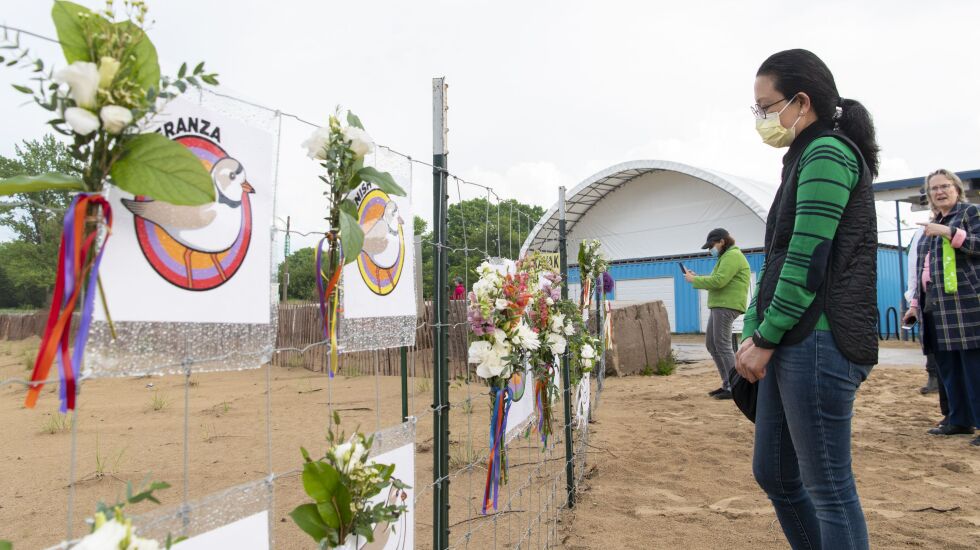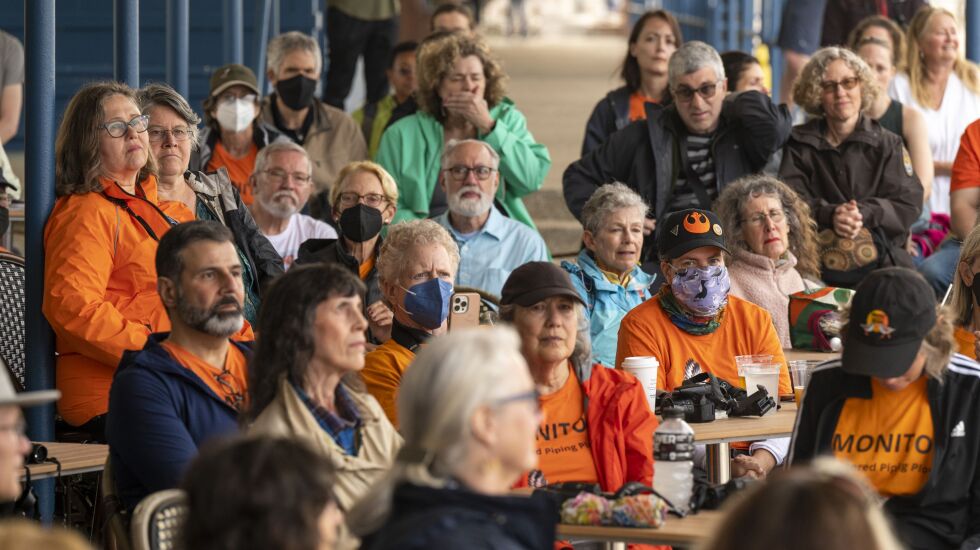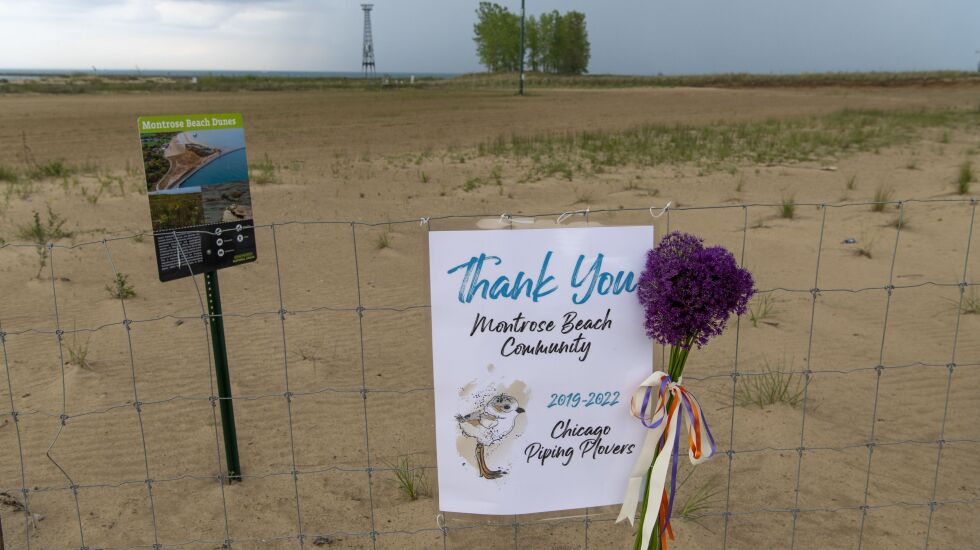
Just feet away from where Chicagoans were first captivated by the city’s famous and endangered piping plover couple, Monty and Rose, volunteers and community members came together Wednesday to grieve their loss.
Monty, the male plover, died at the beach May 13 after volunteers noticed him behaving oddly and stumbling. Rose, the female piping plover, hasn’t returned to Montrose Beach for months and is feared dead.
Melissa Foster — who was first introduced to Monty and Rose when volunteers stopped her from accidentally running into the tiny birds’ small habitat in 2019 — said she was crushed by the news of Monty’s death.
“I was utterly flattened,” Foster said.
Monty and Rose were first spotted at Montrose Beach in 2019 and had returned for three seasons to mate and hatch their chicks, their once small protected area gradually being expanded into a large fenced-in space on the beach where fans of the couple would try to catch glimpses in the spring and summer.
Janet Pellegrini and Linda Radtke, who both volunteered to guard the piping plovers for all three seasons, said Monty’s death sent shockwaves through the tight-knit bird-watching community that had grown to be their protectors.
“Your family and friends understand, but no one else understands why you’re crying about a bird,” Pellegrini said.
At Wednesday’s memorial, volunteers took turns standing in front of around 100 attendees to share their experiences on the beach, sometimes in grueling heat or torrential rain, watching over the little birds.
“There was laughter, tears and so much anxiety,” said Daniela Herrera, a 27-year-old volunteer who was on duty when Monty died.
“I’m glad that Monty was not alone when he passed,” Herrera said. “I hope he felt my love in that moment and felt the love from all of Chicago as well.”

Herrera echoed a sentiment shared by many of the volunteers, as well as Chicagoans who watched the plovers’ journey from afar: their presence was more than just a conservation effort or a birding attraction. For Herrera, they fostered connections between her and Latinx community members who would visit the beach.
“They’d open up to me and tell me about their relationships to birds, the land in their home country of Mexico, Honduras, Ecuador and Columbia,” Herrera said. “Monty and Rose facilitated a beautiful connection between me and the Latinx community that used Montrose for recreation, play and relaxation. For that, I thank them.”
Foster said the city’s efforts to protect the birds inspired a sense of hope that she hadn’t seen before.
“I saw the best of humanity here,” Foster said.
Tamima Itani, the lead volunteer coordinator for Chicago Piping Plovers, said the group is committed to keeping the habitat on Montrose Beach protected, which they’ve unofficially named the Monty and Rose Habitat Expansion.
But, Radtke said, “the story’s not over.”
One of Monty and Rose’s 2021 chicks, Imani, has been spotted on the beach in recent days, foraging just feet away from where his dad took his final breath, volunteers said.
Now, it’s time to play “plover matchmaker,” in hopes of finding Imani a mate that will want to take over the spot where his parents once resided.








